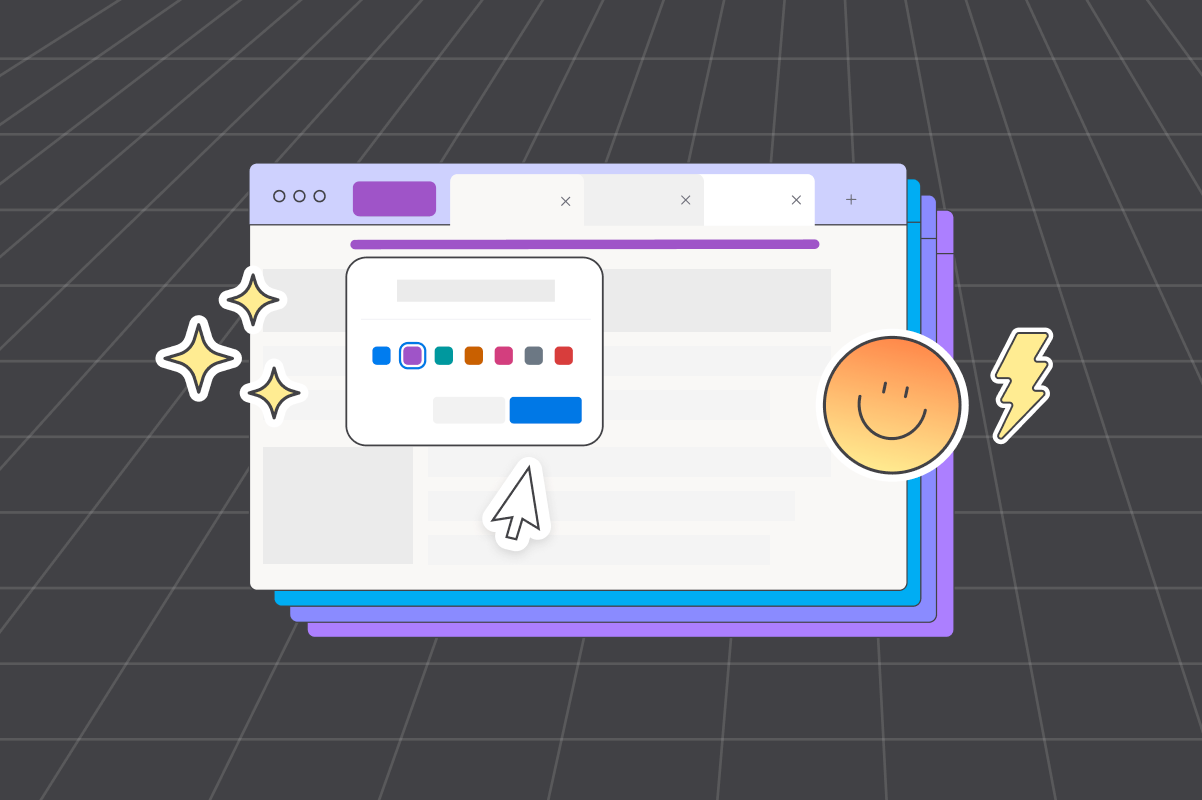The Sidebar is a newsletter from Mozilla, the makers of Firefox. We’ll drop into your inbox every week with tech insights, tips and behind-the-scenes stories about the web you won’t find anywhere else.
WHAT WE LOVED ON THE WEB THIS WEEK
Phantom tabs
Psychology Today floated a slightly stressful concept: a visible progress bar tracking your mental storage, creeping toward full with every scroll, swipe and stray Wikipedia deep dive.
It reminded me of something culture writer Adlan Jackson said about closing an unread tab and feeling it could’ve had his next story, or that it could’ve changed his life.
Even with perfect memory, we still have to choose what to pay attention to. Maybe that’s the point of phantom tabs: not to haunt us, but to reframe what we open next.
— Kristina, editor at Mozilla
HOW-TO…
Deal with the other 47 tabs you still have open
There’s the tab that got away. Then there’s the more immediate problem: the ones that never left.
You can now group tabs on Firefox by category, color or really, however you want — even if it’s just “important,” “slightly important” and “feels important but can’t remember why.”
Other browsers offer something similar, but Firefox keeps your personal classification system local to your device (read: private). Which feels like the right call.
🗂️ Give your tabs the system they deserve
THE COMMENT SECTION
We can’t fact-check our way out of a feelings problem
We recently published a guide to spotting AI-generated misinformation: the extra fingers, the uncanny lighting, the emotion-laden language. All helpful signals.
In some cases though, spotting misinformation isn’t just about recognizing the signs. It’s about noticing how it makes us feel.
Abbie Richards, who’s done research on how misinformation spreads around climate change, told us: “It’s meeting some sort of emotional, psychological, epistemic need.” That might be a sense of control. Or certainty. Or the feeling that you’re in on something everyone else missed.
You can teach people to identify manipulated images. But if the story scratches an emotional itch (especially one they didn’t know they had) it’s already doing its job.
Media literacy matters, but so does emotional literacy. Especially when the content most likely to go viral is designed to hit your emotions before your brain catches up.
👉 Abbie’s take on the world of conspiracy theories
ONE COOL PROJECT
What didn’t come up in class
When Kay Lopez started Latinas Poderosas, it was a personal project — a way to learn the history she didn’t get in school. The kind that’s rarely in textbooks but lives in food, music, invention and all the parts of American culture built by people who weren’t centered in the story.
Since then, it’s grown into something bigger: a space to celebrate Latina heritage, spotlight businesses, share historical context and help people feel more connected to where they come from. As Kay put it, there’s something powerful about learning even a “tad bit of history you never knew.” It makes you want to share it.
She hopes Latinas Poderosas becomes a hub not just for posting, but for finding culture again. It’s the kind of project that makes the internet feel a little more like home.






